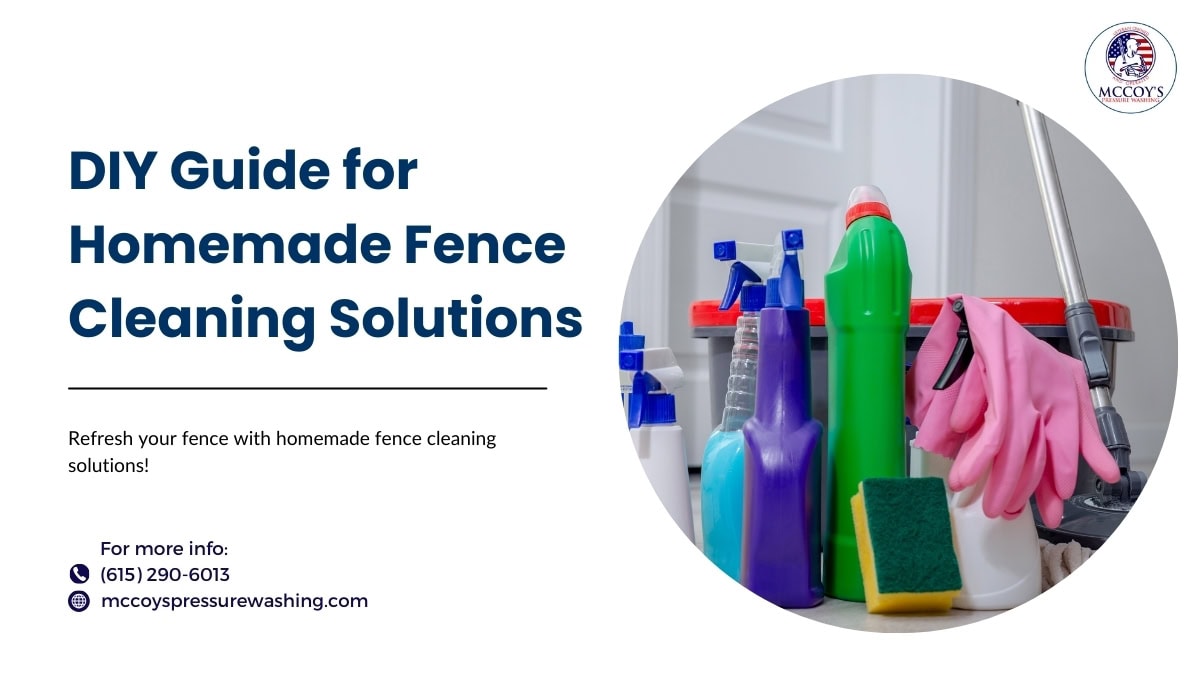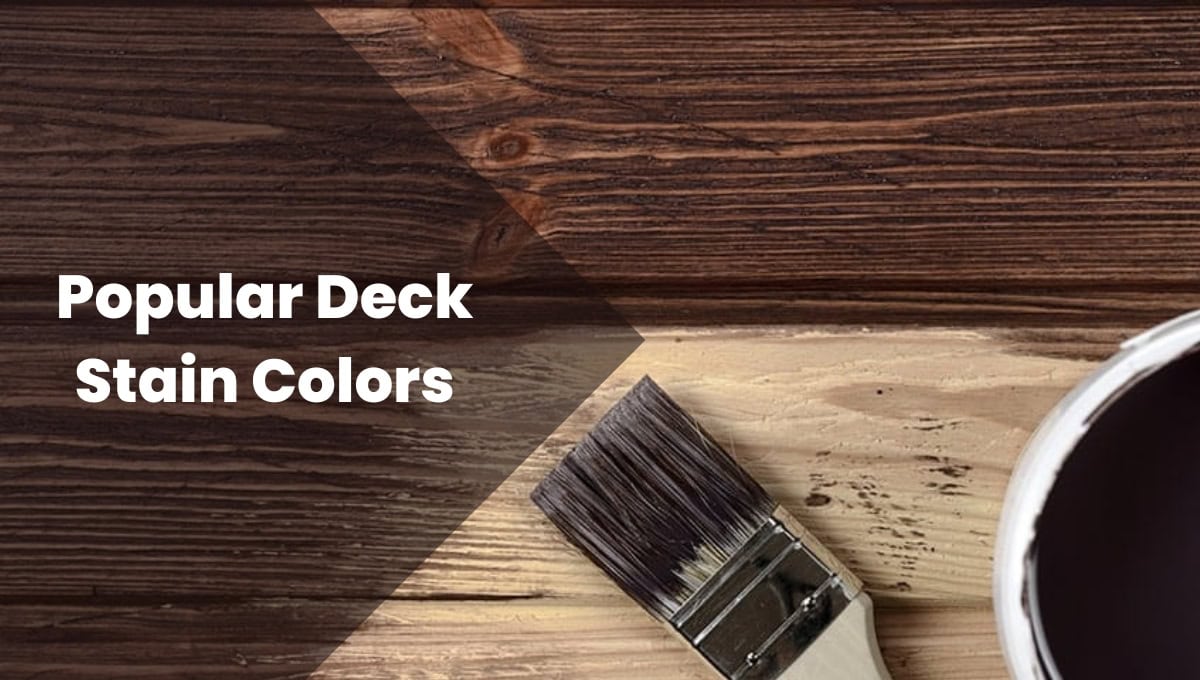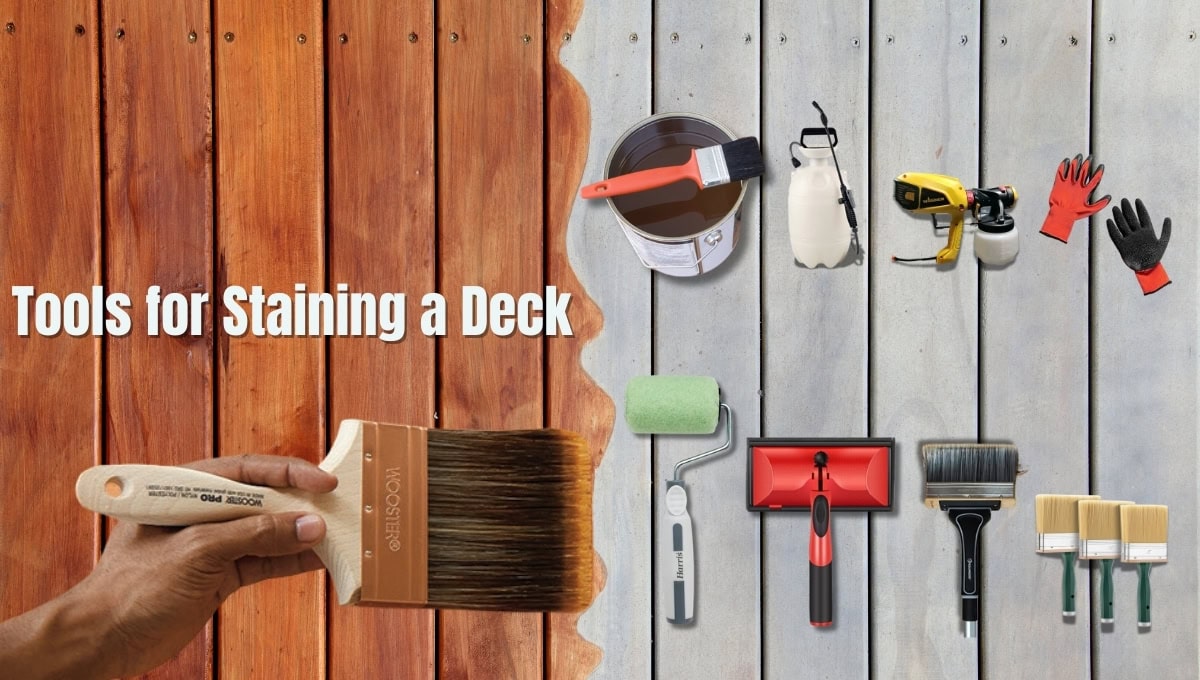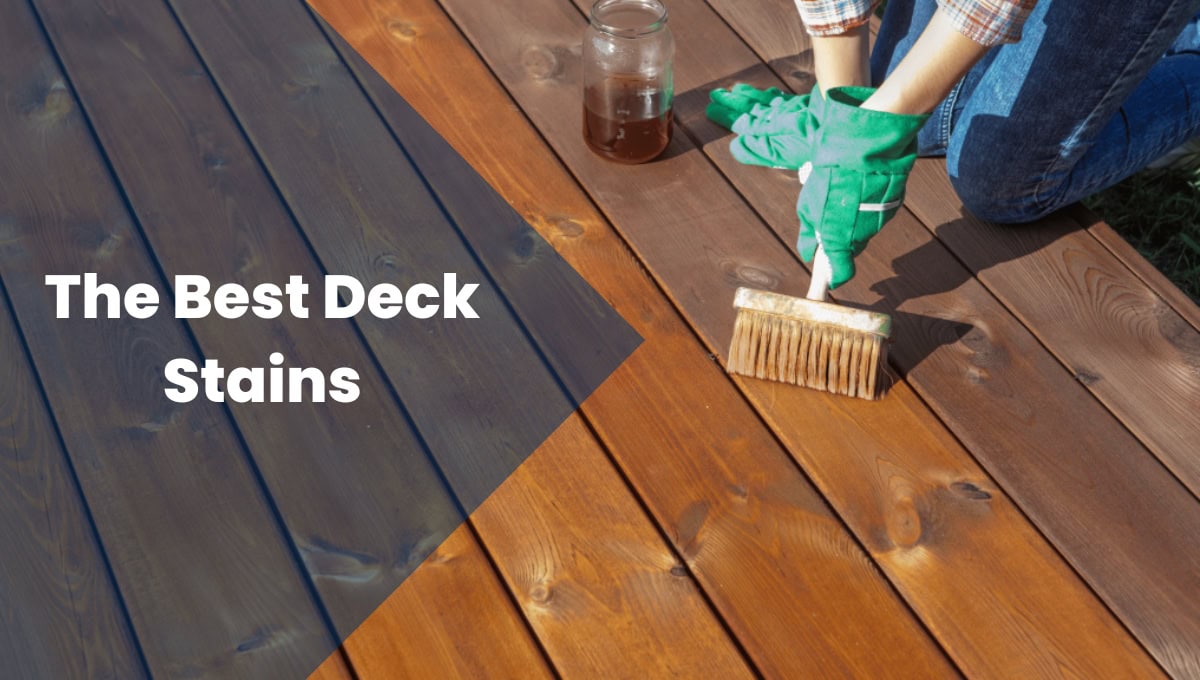If you are searching for homemade fence cleaning solution, then this guide is for you. First, mix water and bleach or water and vinegar in a bucket. Then, scrub the fence using a stiff-bristled or scrubbing brush dipped in the cleaning solution. Start from the top and scrub downwards to clean the fence panels.
The eco-friendly cleaning solutions provide a simple, safe, and effective way to remove dirt, grime, and mildew, preparing your fence for staining or simply restoring its natural beauty. Whether you have a wood, vinyl, or metal fence, we’ve got you covered with gentle DIY solutions for the environment and your wallet.
Why Should You Clean a Fence Before Staining?
Even the most durable fence materials, such as pressure-treated wood, require proper maintenance to maximize their lifespan and aesthetics. Over time, environmental factors like dirt, grime, algae, and mildew can accumulate on the fence’s surface, creating a barrier that hinders the effectiveness of any applied stain or sealant.
Neglecting pre-staining cleaning can compromise the results of your fence staining project in several ways:
- Reduced Stain Adhesion: Dirt and grime prevent the stain from properly penetrating the wood, leading to uneven coverage, a blotchy appearance, and reduced longevity.
- Trapped Contaminants: Staining over existing contaminants like algae and mildew seals them in, potentially accelerating wood degradation and compromising the fence’s structural integrity.
- Diminished Aesthetics: A freshly stained fence with underlying dirt and grime will appear dull and lackluster, failing to achieve the desired visual appeal.
Ingredients for Homemade Fence Cleaners
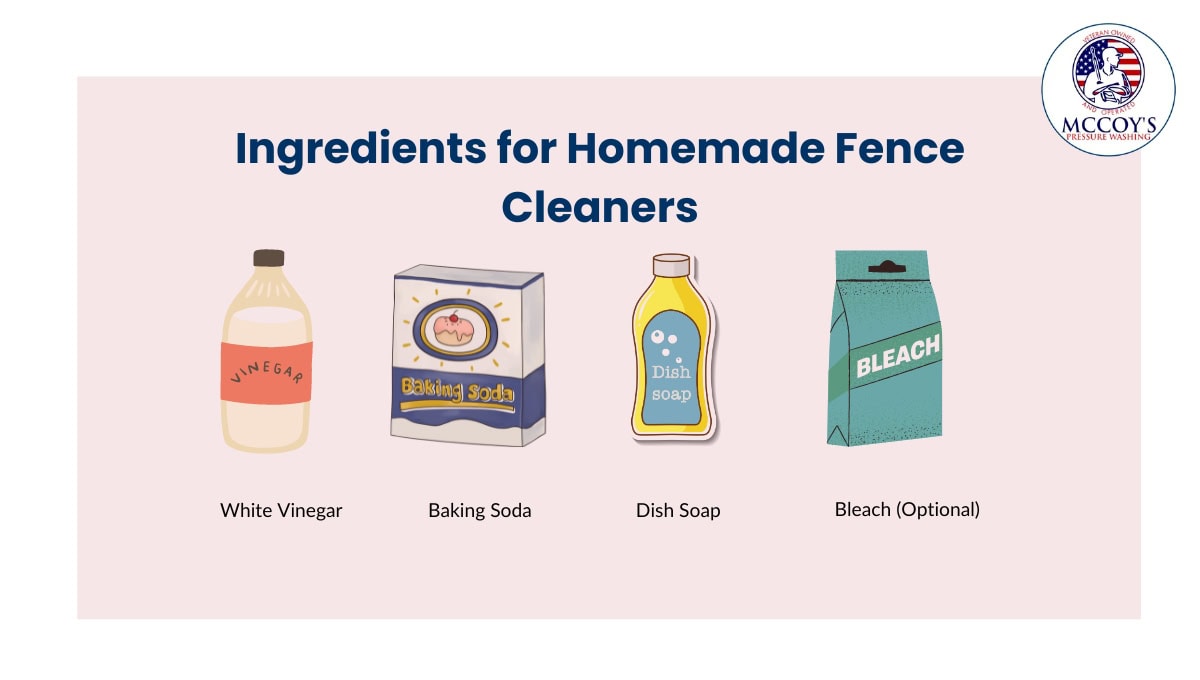
Your fence doesn’t need harsh chemicals or costly cleaners. You can effectively clean and maintain its appearance using natural ingredients readily available at home.
Here are the key ingredients for a DIY fence cleaner include:
- White Vinegar: This natural disinfectant and degreaser is a powerhouse for removing mildew, mold, and algae.
- Baking Soda: A baking soda helps scrub stubborn dirt and grime without damaging the fence surface.
- Dish Soap: A few drops of dish soap can boost the cleaning power of your solution and help it adhere to the fence.
- Bleach (Optional): A diluted bleach solution can be effective for heavily soiled or stained fences, but use with caution and always test it on a small area first.
Steps to Clean Your Fence with a Homemade Solution
With the right approach and some readily available household items, you can effectively clean and restore your fence’s appearance:
1. Gather Your Supplies:
Equip yourself with a bucket, rags or sponges, work gloves, safety goggles, and a scrub brush (preferably with a long handle). Choose your preferred cleaning solution, whether it’s a vinegar-based mix, a baking soda paste, or a diluted bleach solution for tougher stains.
2. Prepare Your Cleaning Solution:
- Vinegar Solution: Combine equal parts water and white vinegar in a spray bottle.
- Baking Soda Paste: Mix baking soda with water to form a thick paste.
- Diluted Bleach Solution: Combine one part bleach with three parts water. (Remember to exercise caution when handling bleach.)
3. Cleaning Process:
Begin by wetting the fence with a hose to loosen dirt and debris. Apply your chosen cleaning solution and allow it to sit for a few minutes to penetrate the surface. Then, using your scrub brush or sponge, gently scrub the fence in sections, working from top to bottom. For stubborn stains, apply the additional cleaner and let it sit for a longer duration before scrubbing.
4. Rinse and Dry:
Once you’ve thoroughly cleaned the entire fence, rinse it thoroughly with water to remove any remaining cleaning solution residue. Allow the fence to air dry completely before applying any stain or sealant.
Advanced Techniques for Cleaning Tough Stains
Pressure washing or power washing is an effective solution for deep fence cleaning. Using state-of-the-art equipment can remove years of accumulated dirt, grime, and mildew. The following are the steps for effective pressure washing:
- Safety First: You should prioritize safety by wearing protective gear and ensuring the area around your fence is clear of any hazards.
- Pressure Adjustment: You must carefully adjust the pressure settings based on your fence material, using lower pressure for delicate wood and higher pressure for sturdier materials like vinyl or metal.
- Top-Down Approach: You should start cleaning from the top of the fence and work your way down to prevent streaks and ensure a uniform finish.
- Targeted Cleaning: You should focus on individual boards or sections, using a wide-angle nozzle to cover a larger surface area and avoid damaging the fence.
- Stubborn Stain Removal: To ensure a thorough clean for tough stains like mold or mildew, you may apply a specialized cleaning solution before pressure washing.
Pressure Washing Tips and Safety Precautions
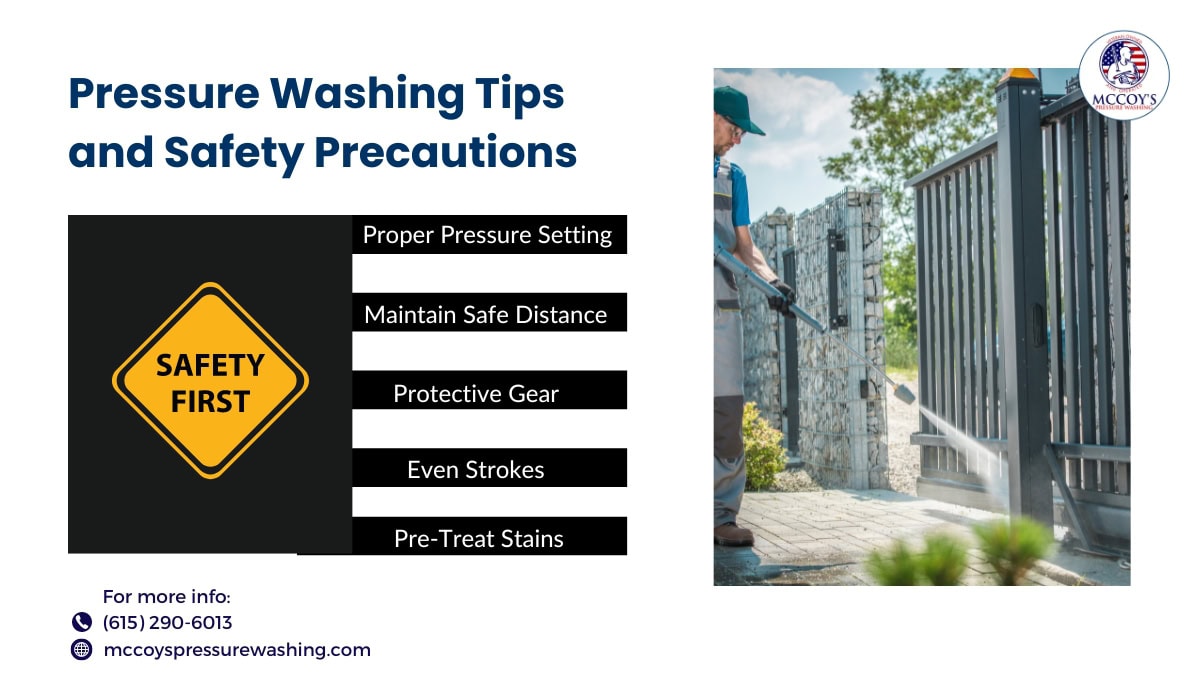
Pressure washing can effectively revitalize your fence, but it’s essential to use it with caution to avoid damaging the surface. Here are some key tips and safety precautions for pressure washing your fence:
- Proper Pressure Setting: Different fence materials require different pressure levels. Use a lower setting (1,500 to 2,000 PSI) for delicate wood fences to avoid gouging or splintering the wood.
- Maintain Safe Distance: To prevent damage, keep the pressure washer nozzle at least 12 inches away from the fence surface. Adjust the distance based on the pressure setting and the condition of the fence.
- Protective Gear: Always wear safety goggles and gloves to protect yourself from flying debris and cleaning solutions.
- Even Strokes: Move the pressure washer nozzle in smooth, even strokes to ensure consistent cleaning and avoid creating streaks or uneven patterns.
- Pre-Treat Stains: For stubborn stains, consider pre-treating the area with a homemade or commercial fence cleaning solution before pressure washing.
By following these tips, you can safely and effectively clean your fence with a pressure washer, restoring its beauty and prolonging its lifespan. If you’re unsure how to clean vinyl fence or about any aspect of pressure washing, it’s always best to consult with a professional fence cleaning service like McCoy’s Deck Staining and Pressure Washing. We have the experience and expertise to ensure your fence is cleaned safely and thoroughly.
Get Professional Help for Fence Cleaning
While DIY solutions can be effective for light cleaning, sometimes your fence needs a little extra TLC. Professional fence cleaning can tackle those tougher stains and grime that regular cleaning can’t handle. It also saves you time and effort, especially for larger or hard-to-reach areas. Additionally, professionals have the expertise and equipment to safely clean all types of fences without causing damage.
McCoy’s is your local, experienced solution for fence cleaning in Murfreesboro, Nashville, Brentwood, and surrounding areas. We specialize in revitalizing all types of fences – wood, vinyl, metal – with safe, eco-friendly cleaning solutions. Call us today for a free estimate and let us transform your fence.
FAQs on Homemade Fence Cleaning Solution
What is the best homemade wood fence cleaner?
The best homemade wood fence cleaner is to pour 2 gallons of warm water into a 5-gallon bucket and add 1 cup of white vinegar and ½ cup of liquid dish soap. This solution is gentle on wood while effectively removing dirt, grime, and mildew.
What can I spray on my fence to clean it?
To clean a fence, spray a diluted bleach solution (one quart of bleach per gallon of water). This is a common DIY option for cleaning fences, effectively removing stains without discoloring wood.
Alternatively, for a gentler cleaning solution, mix water and vinegar with a few drops of dish soap or a tablespoon of baking soda.
How do you clean a fence without scrubbing it?
While some scrubbing might be necessary for stubborn stains, you can minimize it by pre-soaking your fence with a cleaning solution and allowing it to sit for a while before rinsing it off with a hose or pressure washer on a low setting.
Will vinegar clean a wood fence?
Yes, vinegar is an effective cleaner for wood fences. It can help remove dirt, grime, and mildew without damaging the wood. However, diluting it with water is important to avoid over-drying the wood.
How do you get mildew and algae off a fence?
A mixture of bleach and water (1 part bleach to 3 parts water) effectively kills and removes mildew and algae from fences. Apply the solution, let it sit for 15-20 minutes, then rinse it off thoroughly with water. Be sure to wear protective gear when working with bleach.

